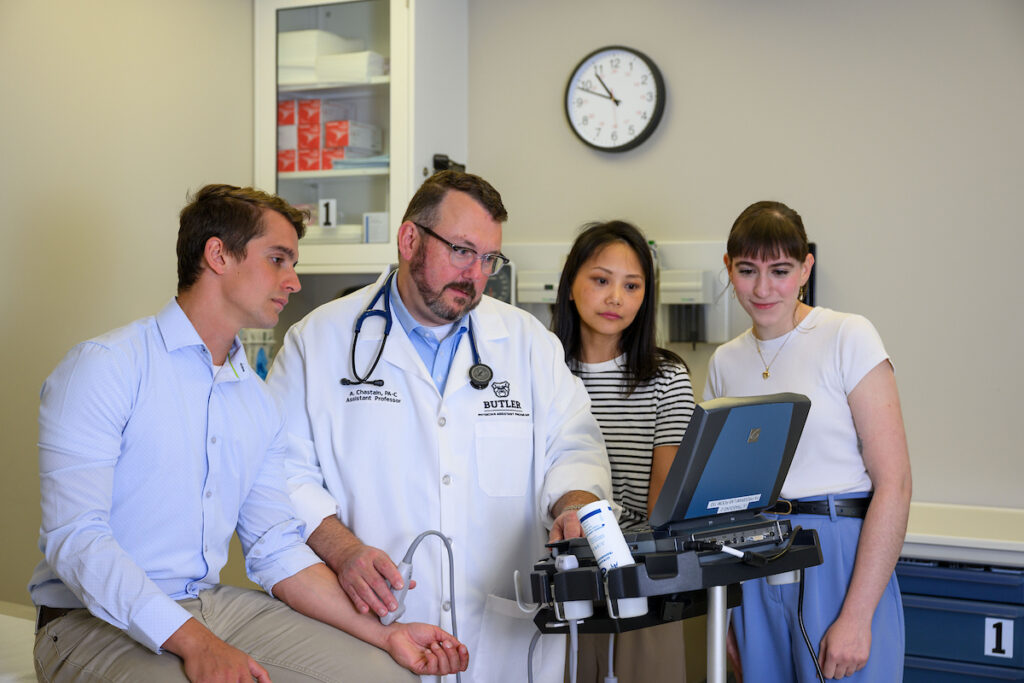What is a Physician Assistant (PA) and How do I Become One?

Physician assistants (PAs) are highly trained medical professionals who work alongside physicians in a wide range of medical contexts. PAs are an essential part of the healthcare team and are licensed to diagnose and treat illnesses and injuries, prescribe medications, order and interpret lab work, perform examinations on patients, and more. Their role is both versatile and collaborative, bridging the gap between physicians and patients to ensure high-quality, patient-centered care. PAs play a crucial role in increasing access to quality healthcare services.
The PA profession offers both variety and specialization, as PAs can practice in inpatient or outpatient clinics, primary care offices, urgent care clinics, emergency departments, and a variety of medical and surgical specialties. Since the demand for healthcare professionals continues to increase in the US, PAs support the healthcare system with their ability to provide advanced patient care following a shorter educational journey than physicians.
What are the admission requirements for PA programs?
Most PA programs require students to obtain a bachelor’s degree prior to admission along with program-specific prerequisites. A strong foundation in the sciences is critical in addition to a strong GPA, as admission is highly competitive. Experiential learning in direct patient care often helps applicants with career discernment and is required by some PA programs.
Community service and leadership experience are also important for developing the skills and values of a healthcare provider. Some programs, like the PA Program at Butler University, require the Graduate Record Examination (GRE). Other programs may require the less common PA-CAT, a specialized test for PA applicants.
Strong letters of recommendation, a well-crafted personal statement, and an interview are also important components of the application process.
What does it take to become a PA?
PA school itself is rigorous and lasts two to three years. The first year typically focuses on classroom and lab-based learning, covering subjects like anatomy, pharmacology, clinical medicine, and clinical skills. Students spend long hours in lectures, labs, and small group discussions, mastering the foundational knowledge needed for clinical practice.
The second phase of PA school is clinical rotations, during which students gain hands-on experience in various medical specialties, such as family medicine, internal medicine, surgery, pediatrics, and psychiatry. These rotations allow students to apply their knowledge in real-world settings and build the skills needed to care for diverse patient populations.
After completing a PA program, graduates must pass the Physician Assistant National Certifying Examination (PANCE) to become licensed. Once certified and licensed, PAs can begin practicing in their chosen field. Many PAs also choose to pursue additional certifications, a doctoral degree, or specialize in specific areas of medicine through postgraduate programs or on-the-job training.
Overall, becoming a PA is a challenging but rewarding journey for those passionate about healthcare. PAs have the unique opportunity to make a meaningful impact on patients’ lives while enjoying a dynamic and flexible career. For high school and college students interested in this path, early preparation, strong academic performance, and a commitment to helping others are key to success in this exciting and growing profession.
Butler University’s PA Program
As Indiana’s longest-accredited PA program, Butler University has built a reputation for sending empathetic, practice-ready clinicians into a rapidly evolving medical field. The Butler PA Program couples this history of excellence with an eye toward the future, with an innovative curriculum taught by top-notch faculty. With its accelerated 24-month program and high job placement rates, Butler’s PA program gives aspiring leaders in healthcare a foundation in primary care to deliver high-quality, patient-centered care in a wide variety of clinical settings.
Ready to learn more? Attend an information session or contact paadmission@butler.edu.

